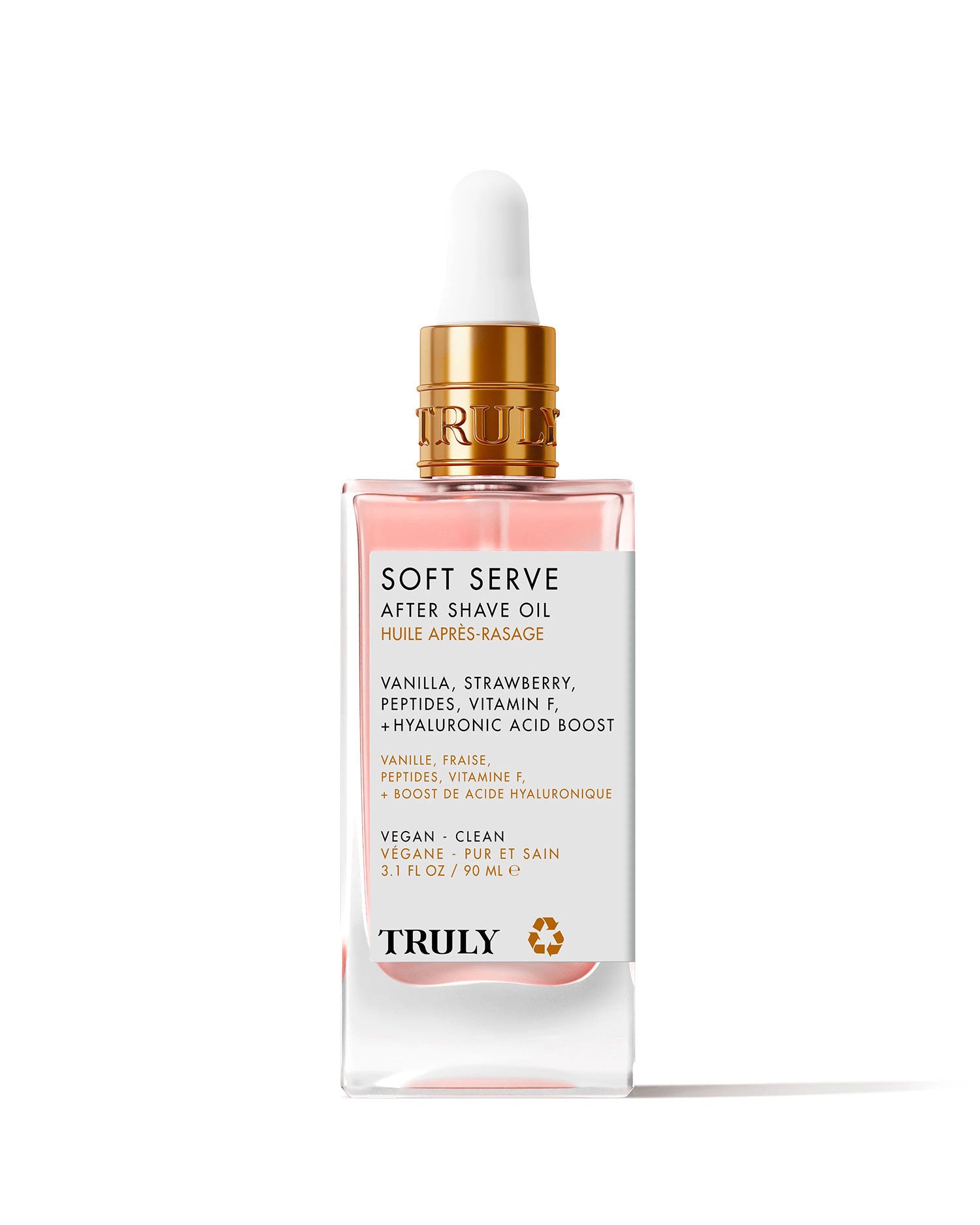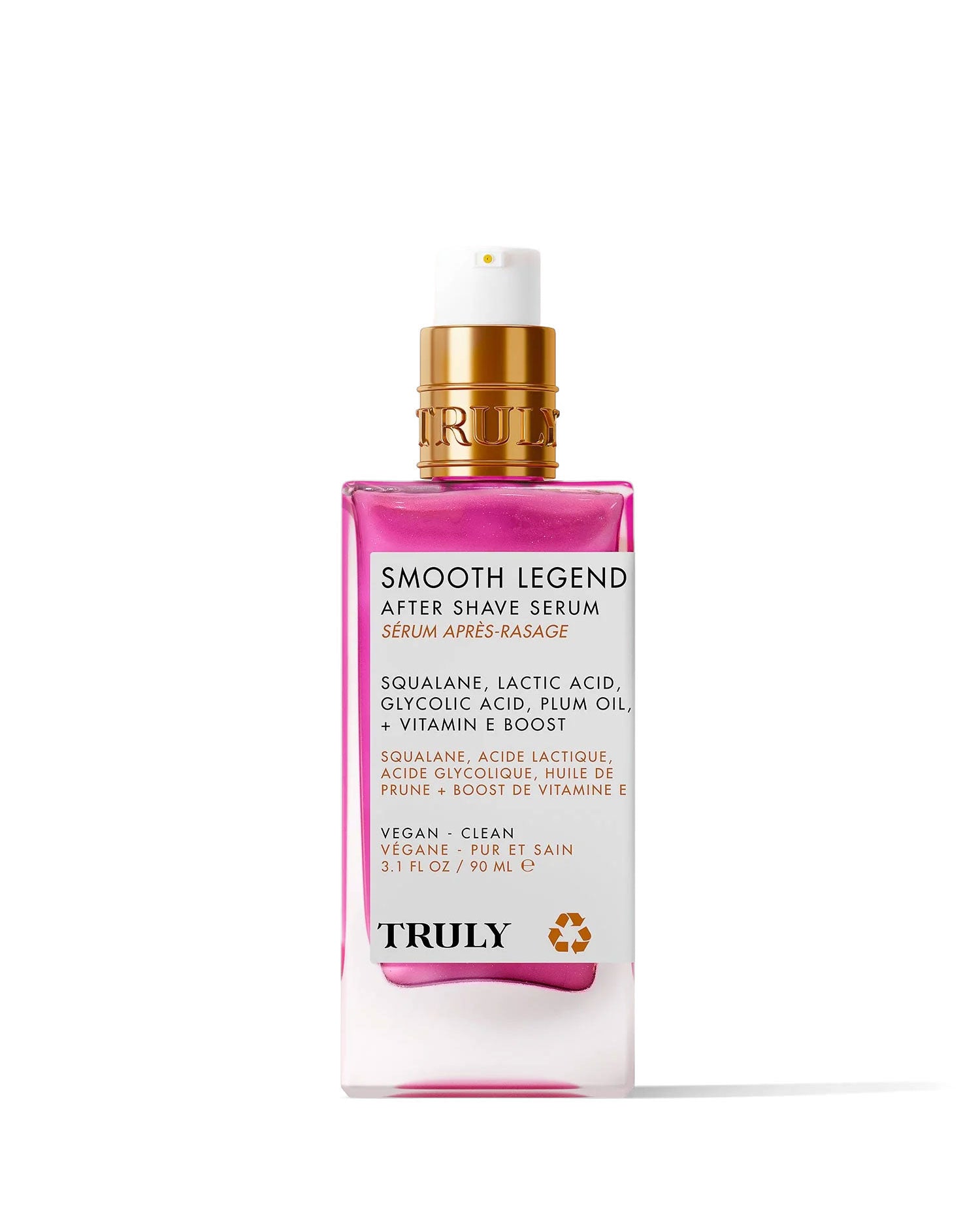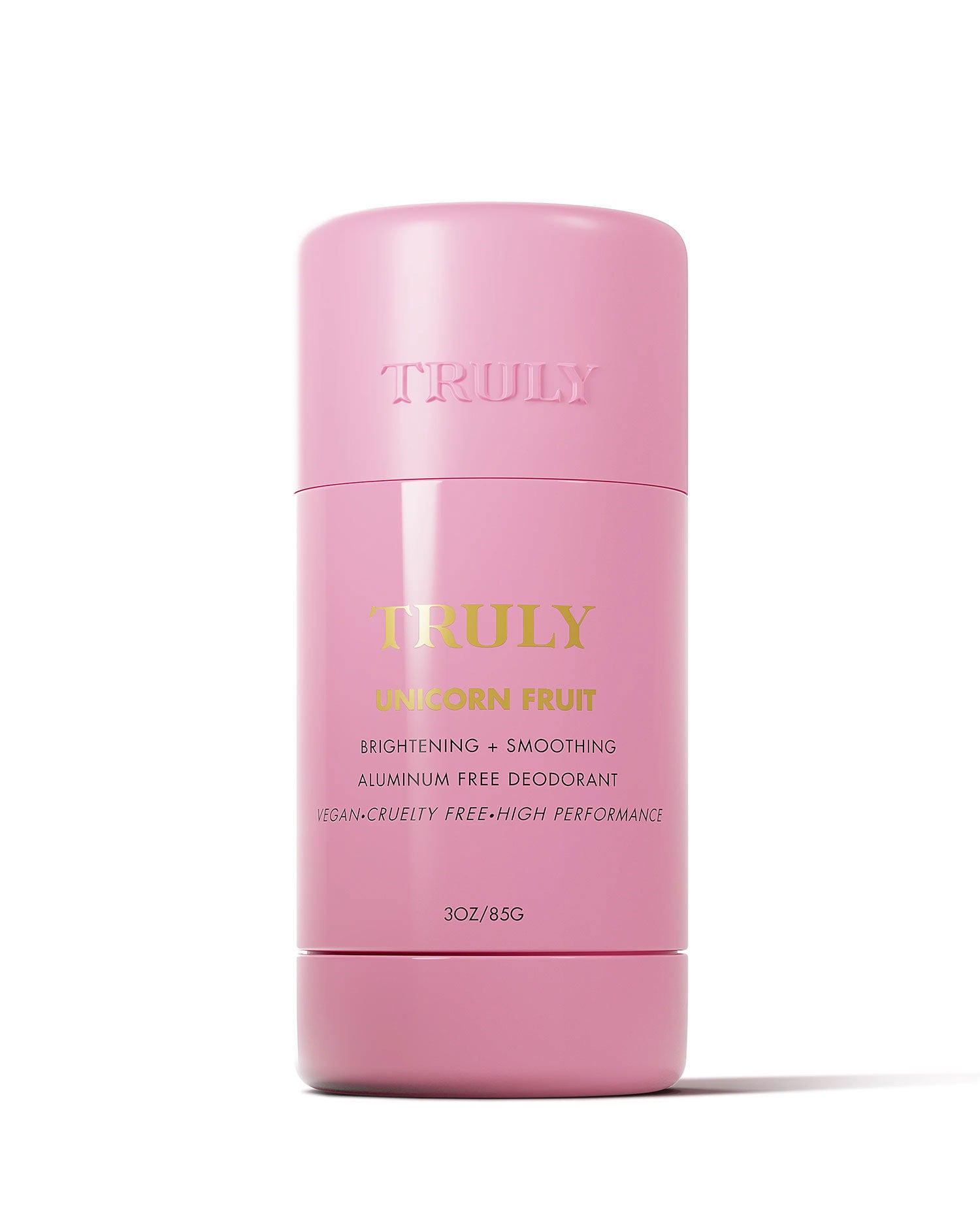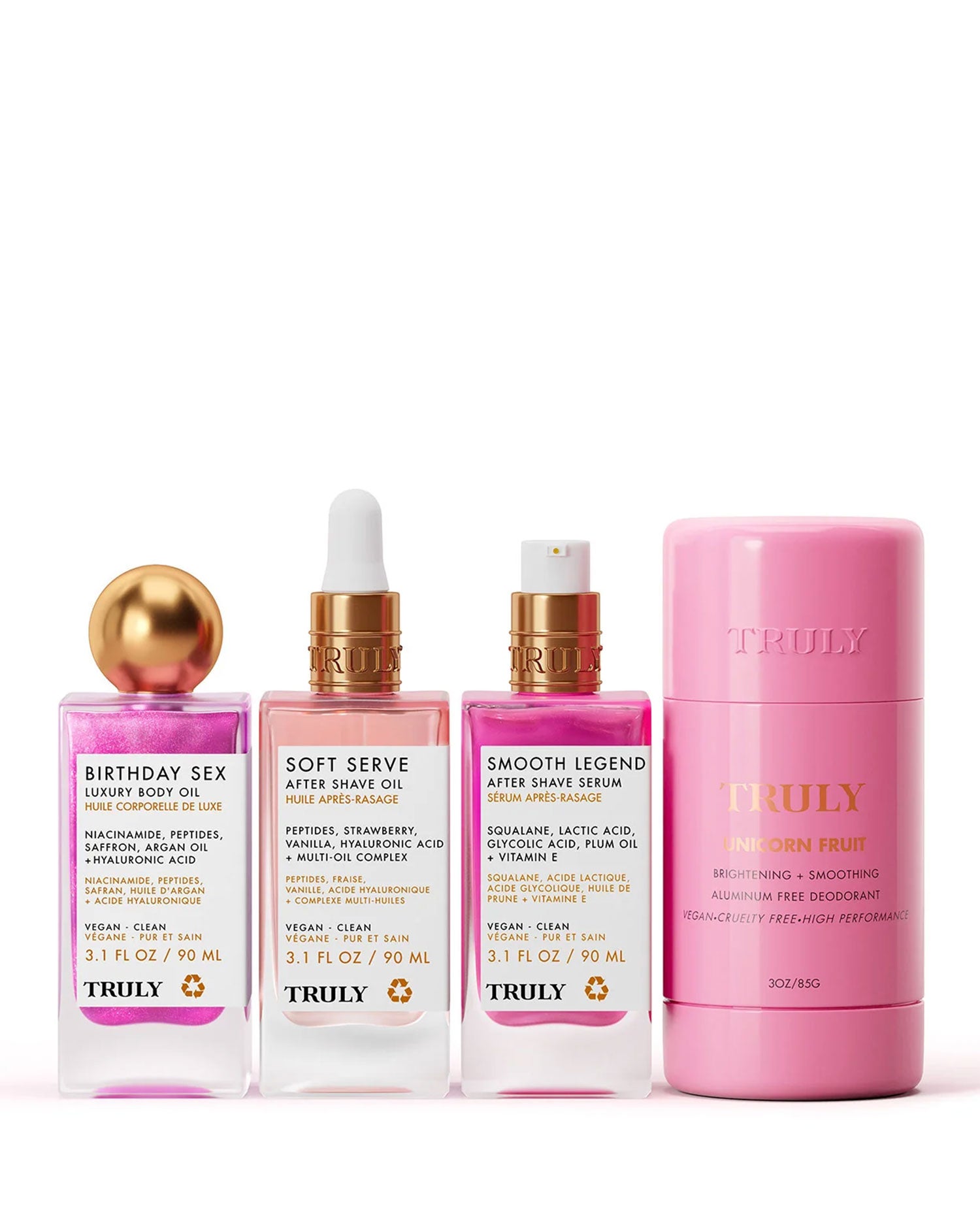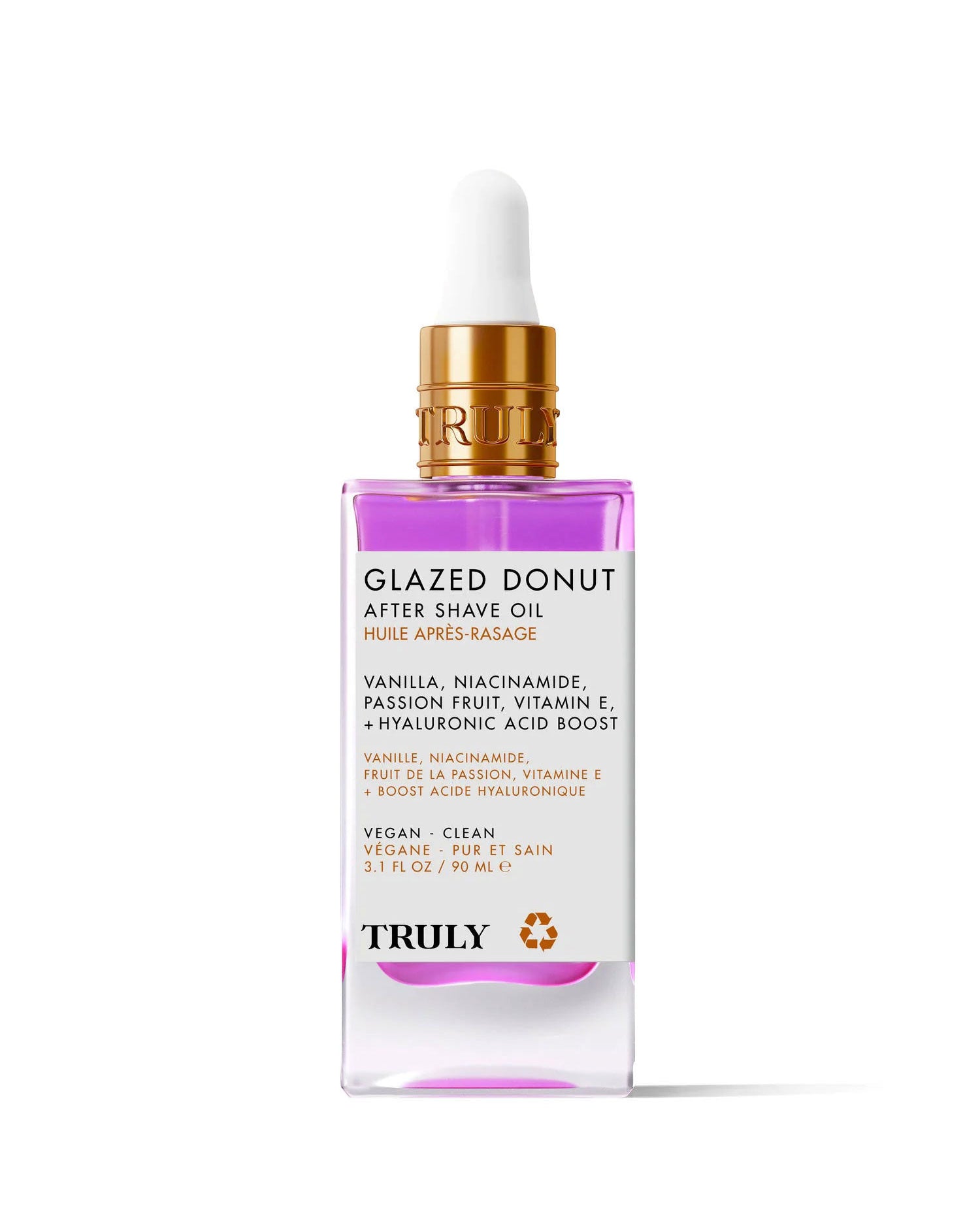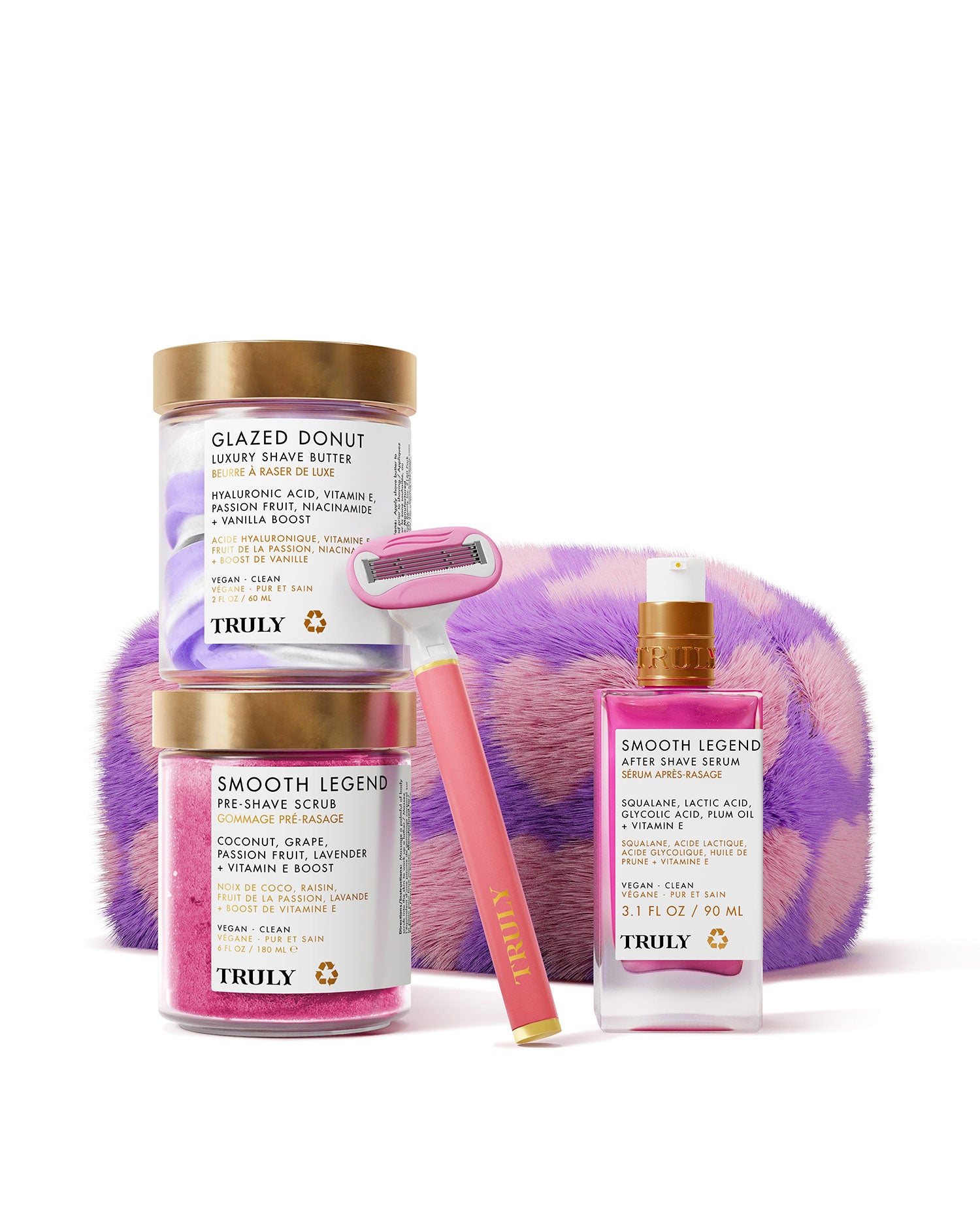How Coffee Affects Your Skin
February 14, 2023
By: Truly Beauty
Are you someone who lives for their morning Americano, cappuccino, or shot of espresso? Then you might be interested in learning exactly what affects your morning brew is having on your complexion. Or maybe not.
Either way, we're going to delve into the effects coffee consumption has on the skin so you can decide whether you want to continue your caffeine habit -- or not.
*SPOILER ALERT*: it's not all bad!
Coffee Can Slow Down Collagen Production
According to dermatologists, the caffeine in coffee slows down the rate at which your body produces collagen. In case you weren't aware, collagen is the protein that gives skin its bounce, firmness, and elasticity. In other words, when there's less collagen in your body, skin starts to drop and fine lines and wrinkles begin to appear. Don't worry, though. This isn't an overnight thing. You can still enjoy your latte without worrying about waking up with a sagging chin the next day. It won't happen!
Bear in mind that coffee doesn't destroy collagen. It inhibits collagen production. That means you'd have to drink A LOT of coffee to deplete collagen production altogether. We're talking a dozen or more cups per day!
What's more, the derms say refined carbohydrates and sugar are what destroy collagen. So you might want to hold off on the sugar if you want to maintain your radiant, youthful complexion. It's what you put in your coffee that's the real issue!
Coffee is Packed with Antioxidants
Before you decide to quit your morning cup of coffee, there's something you need to hear about coffee beans: they're loaded with antioxidants.
"Caffeine has been shown to be beneficial for your skin," says dermatologist Gary Goldenberg. "It has antioxidant properties and has been shown to be anti-inflammatory." It can also fight free radicals, the damaging molecules that lead to premature aging.
So while there are some negative effects of drinking coffee, there are also some positive effects of caffeine on the skin.
Coffee Can Increase Your Stress Levels
Coffee drinking is also linked to raising the stress hormone cortisol, which can cause a range of skin problems such as visible signs of aging, dryness, and acne.
If you have anxiety, you may want to limit your caffeine intake as the effects of caffeine may worsen your condition and trigger issues such as faster heartbeat.
"Black coffee might not work for people that are prone to it. Instead, balance the super-stimulating effects with milk (which is chock-full of calming tryptophan) or almond milk, which is rich in the relaxing properties of magnesium," says nutritionist Lovneet Batra.
Coffee is a Vasoconstrictor
As for another positive coffee affect on skin: it's a natural vasoconstrictor. This means it constricts blood vessels, making it an excellent treatment for reducing redness and puffiness. That's why you'll often find caffeine in eye creams, as it's great for treating puffy eyes. It may even be helpful for those with rosacea.
Just be aware that caffeine can be dehydrating, so avoid over drinking it for the sake of your skin health.
Coffee May Trigger Breakouts
Technically, coffee can't cause acne. However, if you're prone to breakouts and you take your coffee loaded with milk, creamer, sugar, and caramel shots, it could make matters worse.
That said, coffee drinking has been linked to an increase in stress response hormones, which can trigger a range of skin issues, like premature aging. It can also increase the amount of oil your oil glands produce. When excess sebum is present on the skin, pores can become clogged and breakouts can form.
How Much Coffee is the Right Amount?
Coffee has a range of skin and health benefits. The question is, how much should you be drinking in order to reap the benefits without overdoing it? According to the experts, a healthy amount of coffee is, generally speaking, around 2-4 cups daily. However, if you have anxiety or you're sensitive to coffee, you might want to try limiting your daily coffee intake to 1-2 cups. Or switch to decaf!
The experts also advise keeping your coffee drinking to the AM to avoid disrupting your sleep. Since caffeine works by waking your body up, the evening really isn't the best time to sip on a latte or macchiato.
If you are a serious coffee drinker, you should also try upping your daily water intake in order to stay hydrated and keep your skin looking fresh.
When consumed in the right quantity and without all those extras (sugar, milk, sweeteners), coffee is good for your skin. It's always best to stick with black, unsweetened coffee which offers the most skin and health benefits. If you can't bear the thought of drinking black coffee, stick with your fave cappuccino or latte -- but limit yourself to one per day.
Not a coffee drinker or trying to quit? Try making it part of your skincare routine instead. As you can see, we offer some very interesting caffeine-infused skincare products you can easily get your hands on. Go ahead, and reap the benefits of topical coffee skincare products!













